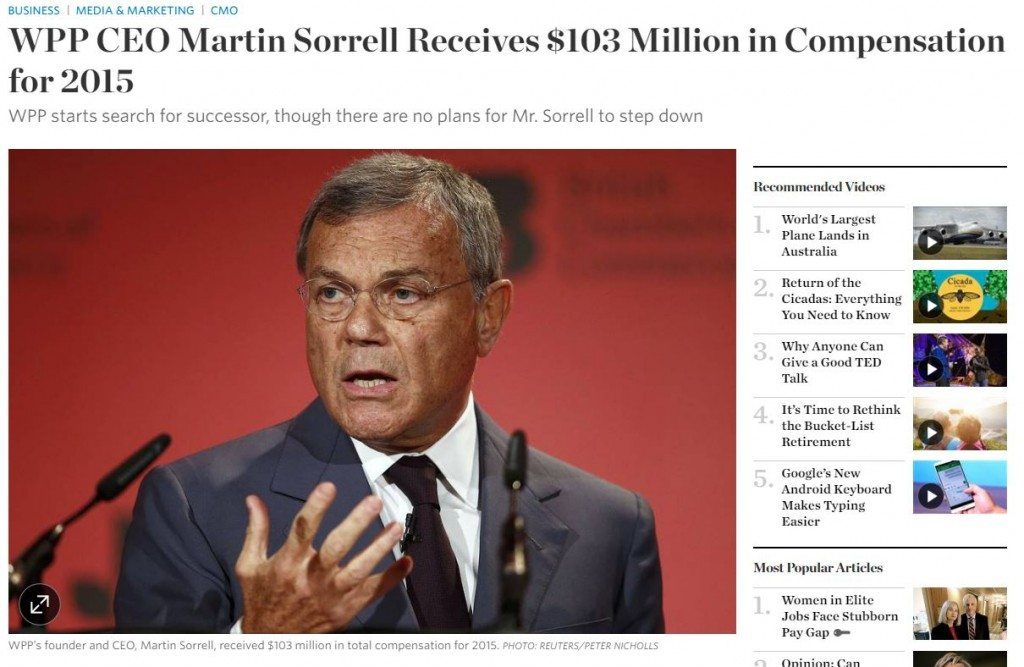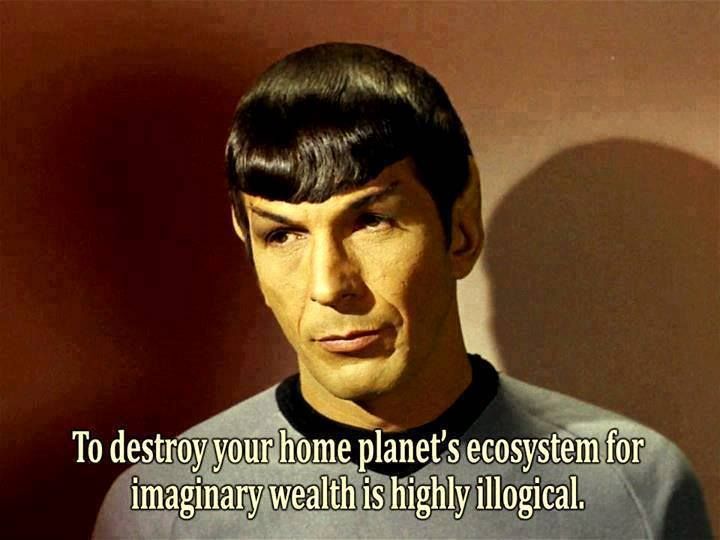
I was talking to a City chap this week about the Brexit vote and he felt it was clear we would leave. I said I couldn’t see that because there was not a single logical economic reason for leaving. He said that I was stupid to think of this as logical. It’s emotional. The Leave campaign is all about appealing to the general voters anger over politicians, corporations, leadership and the total lack of understanding of what real people have to deal with these days. Therefore, it was not going to be a logical vote, but an emotional one to make a point. I asked him to clarify what he meant by this disconnection between the leaders and the people. This led to a long discussion lamenting the way the world has moved.
Disconnected from reality, he believes that politicians, corporations, regulators and banks are all just running the machine as though it were a machine these days. His examples resonated. Starting with the City itself, he noted how many traders were being replaced with automated trading systems. The problem with this, he believed, is that things become disconnected from reality. Like the fact that credit default swaps (CDS) markets ended in the financial implosion of 2008, the Global Financial Crisis (GFC) is just one example of where logic beat thinking. Logic says that you can create bundled packages of debt that is derisked based upon the bundling. Thinking says that if you bundle bundled debts in ever increasing circles of complexity, you end up with a giant financial Jenga. The latter proved to be correct. Logic says that you can package mortgages into ever greater groups of bundled debt. Thinking says that those groups of bundled debt related to real people in real homes.
We then talked about other examples, such as UK housing markets. Logic says that there is money to be made from property. Thinking says that if you end up with a market that price excludes most ordinary workers from the housing market, you either have to build free housing or face civil war. That vision hasn’t played out yet, but with the average London property price now $1 million whilst the average workers’ pay is $50,000 a year, something’s gotta give.
Corporations are run by CEOs disconnected from reality and earning 500 times the average Joe’s pay. When Martin Sorrell awards himself $100 million for the year, something’s gotta give.
Regulators equally have no idea. Mark Carney, the Governor of the Bank of England, has a personal net worth of at least $5 million, can he really empathise with the life of someone working on a checkout till? Can David Cameron (net worth $50 million) empathise with the guy working the pumps at the local gas station? And when the people controlling the economy are so dislocated from the people living in the economy, can they really connect with the people? It is for these reasons that the likes of Bernie Saunders and Jeremy Corbyn make headway. They seem more like one of us.
The debate was a good one, covering these and more topics related to the Brexit vote on June 23. I’ve blogged about the Brexit vote before, but my colleague believes that it will be far closer than anyone expects. I must admit, it was a slightly depressing conversation as you have to remember we live in a world where there is also the Donald Trump and the Boris Johnson’s. Is this the new reality?
Yes, we can have bleak visions of the future, but we can also have optimistic views of the future. As usual, that brings me back to Star Trek. In Star Trek, Spock is ruled by his Vulcan father’s logic. Logic beats emotion is the Vulcan way of the world. In the Vulcan way of the world, credit default swaps make perfect sense as does collateralised debt obligations. In the Vulcan way of the world, 125% mortgages and self-certified mortgages work. In the Vulcan way of the world, leaders who believe they connect with citizens through EastEnders and Coronation Street is wholly justified.
The problem is that none of these things are true. Debt on housing really exists. Poverty in mainstream Britain is a fact of life. High net worth citizens and corporations screwing the tax system is the way it works.
The Vulcan world of Logic does not work without the Kirk world of Emotion. Emotions temper Logic. Emotions bring the humanity to the numbers. Emotions are the conscience of Logic. This is the real way in which our world works. Emotion acts as the brakes of Logic. Without Emotions, the Bernie Madoff’s and Richard S. Fuld Junior’s of this world make sense, as do the Gordon Gekko’s and Jordan Belfort’s.
In other words, logic is not common sense. Logic is just a way of looking at the world in theory, disconnected from reality. That is why academics cannot be trusted. After all, an academic is just someone who looks at something working in reality and wonders what it would look like in theory. I would far rather work with the world of reality and, for that reason, believe that the more we automate, the more we need to check that the way we automate makes sense. Not from a logical point of view, but from a humanist point of view.
We will live in a world of artificial intelligence and robotics in the very near future. I want that to be a world that keeps our basic humanity and doesn’t destroy it.
Anyway, apologies for today’s perspective. I guess I’m just debating and reading too much. Back to reality tomorrow. Meantime, if you want to see an even more gloomy view of the future, I can recommend a book I’m reading called the Mandibles by Lionel Shriver. Lionel predicts a future where America implodes, loses its superpower status, and the successor to bitcoin becomes the reserve currency of the world as the dollar devalues radically to almost nothing. Really far-fetched?
Chris M Skinner
Chris Skinner is best known as an independent commentator on the financial markets through his blog, TheFinanser.com, as author of the bestselling book Digital Bank, and Chair of the European networking forum the Financial Services Club. He has been voted one of the most influential people in banking by The Financial Brand (as well as one of the best blogs), a FinTech Titan (Next Bank), one of the Fintech Leaders you need to follow (City AM, Deluxe and Jax Finance), as well as one of the Top 40 most influential people in financial technology by the Wall Street Journal's Financial News. To learn more click here...




